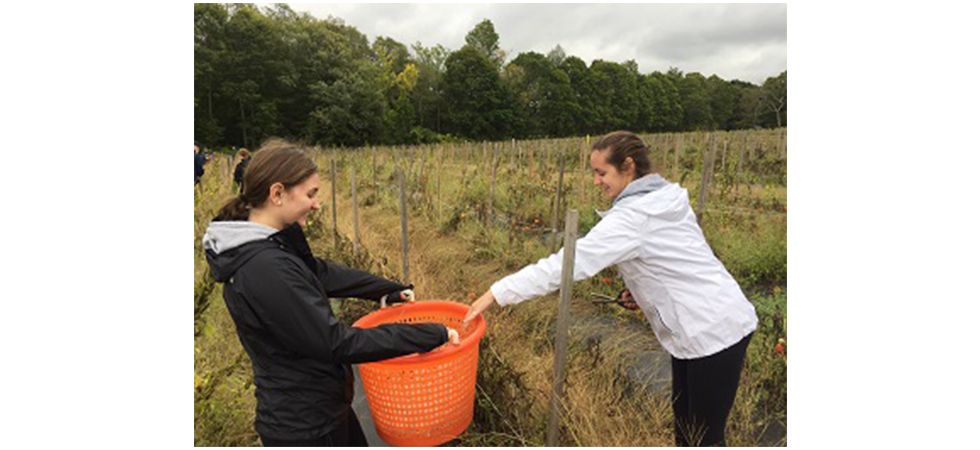Students Apply Biology Concepts to Address Food Insecurities

Students enrolled in the BIO160: Concepts in Biology class learned practical and valuable skills through a hands-on experience working with Community Harvest Project (CHP), a local nonprofit that grows and donates produce to those grappling with food insecurity. In addition to learning important topics in the classroom, such as basic cell biology, evolution, and metabolism, students also explored issues related to food production, sustainable practices, and basic human rights.
“This was an experiment that came more from my desire to provide a first-year class with a memorable experience together than to teach them biology,” said David Crowley, Ph.D., associate professor of biology. “I wanted the students to remember that biology is more than a list of concepts or terms. I think it is helpful to connect disciplinary content with the larger goal of having students become thoughtful citizens and people who serve others with compassion.”
Prof. Crowley decided to implement a community service component to his fall 2017 biology course because the opportunity not only aligned with his course goals – and Assumption’s mission – but enhanced the course by providing students an opportunity to create a memorable, shared learning experience through self-designed projects and a trip to CHP in neighboring Grafton.
“I think it is important that courses in all disciplines make connections to key social problems and how practitioners of that discipline can impact these problems for the good,” said Prof. Crowley.
During their time volunteering at CHP, students worked in the tomato fields, which this summer provided more than 50,000 pounds of tomatoes to hunger and relief organizations, and helped prepare the same fields for the next growing season. Students also worked on independent projects such as a public service announcement about food waste, and created flyers to increase awareness of hunger issues, food waste, and volunteer opportunities at CHP.
Gertrude Cox ’21, a psychology major from Wellfleet on the pre-med track, enjoyed the opportunity to meet a curriculum requirement while getting involved in the local community. “This course allowed me to expand my perception of biology outside of the classroom,” she said. “The content of BIO160 focuses on interpreting and analyzing data, and I was able to utilize those skills when completing my project on the effects of hunger on a child’s education.” Cox added that as part of her project, she created a donation page to support the cause, sharing that this class gave her the courage to “step outside of my comfort zone.”
“These students are becoming ambassadors for health and hunger relief on their campus and within their network,” said Tori Buerschaper, education and volunteer coordinator at CHP, adding that these efforts will “increase student volunteerism, decrease waste, and make students more conscious of their own health and the impact their food choices make.”
